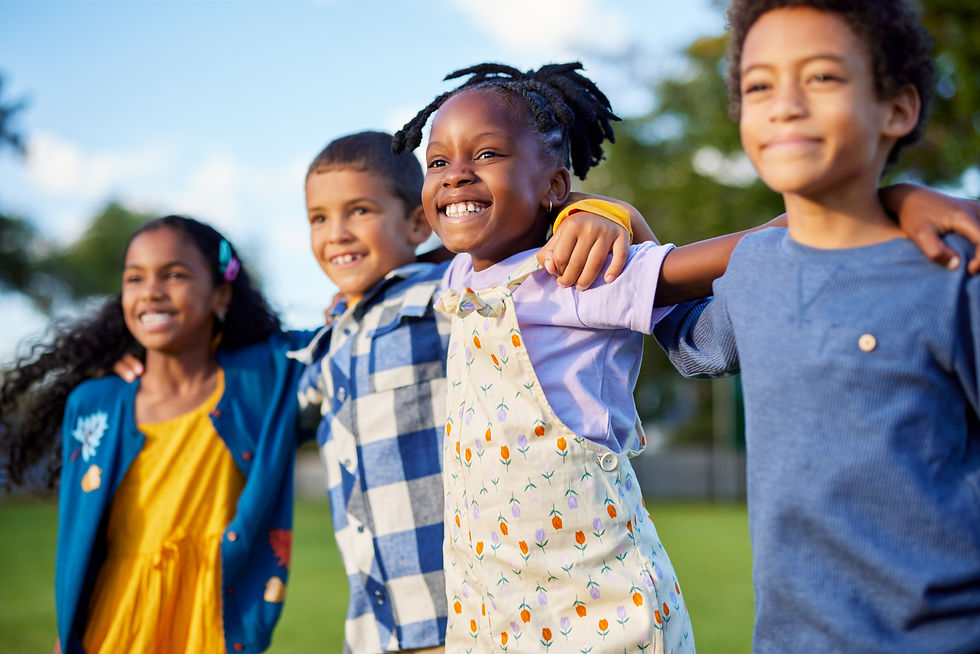Child and Family Behavioral Health Resources in Georgia
- Gbemi Famule
- Jul 15, 2022
- 3 min read

Health begins with mental health, and the United States is currently experiencing a mental health crisis. This problem has been highlighted by national and local leaders and elected officials. For example, on December 7th, 2021, the U.S. Surgeon General, Vivek H. Murthy, issued an advisory highlighting the mental health needs of young adults. Then earlier this year on February 1st the U.S. Congress held a hearing on the growing crisis of Mental Health and Substance Use Disorders.
Looking toward solutions, President Biden in his March 1st State of the Union Address identified mental health as one of the four health priorities in his “unity agenda”. Locally, the Mental Health Parity Act, which would ensure insurance coverage for mental health care, was passed into law in April. The law implements recommendations from the Georgia Behavioral Health Reform and Innovation Commission and this document from the Georgia Mental Health Policy Partnership outlines this historic bill.
Since the fall of 2021, Resilient Georgia has been collaborating with regional coalitions to produce Regional Child and Family Behavioral Health Resource Guides to address the mental health crisis in Georgia. The term behavioral health refers to the interconnectedness between behaviors or habits and mental and physical wellbeing. It encompasses mental health and substance use disorders.
In the course of my internship with Resilient Georgia, I have had the opportunity to work on five resource guides. So far, we have published four resource guides; Resilient Middle Georgia, Resilient Gwinnett, Greater Valdosta United Way and Aligning Community Systems for Resilience Initiative (which serves Clayton County). And we will soon publish the resource guide for Resilient Northeast Georgia.
The resource guides include child and family behavioral health state and local resources, service descriptions, and contact information for the counties that the regional coalitions serve. The goals of the guides are to serve, inform and assist the regional coalition partners, community members and local stakeholders in finding behavioral and mental resources in their community. One of the important features of the resource guides is its customizability to the specific region, as Georgia has 159 unique counties, ranging from rural to urban.
This project is also personally meaningful to me. One of my motivators of working on this project was to contribute to equipping health professionals and others alike with better resource-finding tools. Before this position, I worked as a community health promoter at Wisconsin’s largest free clinic, where I aided patients and community clients by finding resources for their various needs. During that time, there was no comprehensive resource finding tool that I could use to assist my clients and give them the resources they needed to advocate for themselves. Due to these experiences and other similar experiences, along with a desire to work for systematic change, I decided to pursue an MPH degree.
It has been a privilege to work on this project, and as a student and an advocate of community-wide health interventions, I appreciate the chance to contribute toward enhancing the overall mental (and general) health landscape in Georgia by assessing existing mental health resources and curating them into a user-friendly resource. In the course of researching and developing these resource guides, I have learned a few lessons, including:
Lesson 1: Behavioral and Mental resources are not equally distributed across counties. The implication of this is unequal access to mental health services, like those provided by licensed therapists. Residents of underserved counties either have to travel to bigger more resourced neighboring counties to access care or do without. They also often face challenges with transportation and insurance coverage.
Lesson 2: The closure of rural and Critical Access Hospitals severely impacts access to mental health care. Since 2010, nine rural hospitals have closed. In areas with a shortage of mental health services, these hospitals are often the safety net for mental health care.
Lesson 3: While there is a lot of work left to be done, the work is worth it. As a community, we can be motivated and encouraged as we continue connecting Georgians, young and old, to critical mental health resources by Surgeon General Murthy's words, “if we seize this moment, step up for our children and their families in their moment of need, and lead with inclusion, kindness, and respect, we can lay the foundation for a healthier, more resilient, and more fulfilled nation.”
In conclusion, the resource guides have been successful in connecting people to existing services, which has been one of the joys of this project. Additionally, the resource guides also help communities identify the gaps in services and that points to the areas that need solutions. And as Resilient Georgia continues to develop Regional Child and Family Behavioral Resource Guides with other coalitions, we hope to contribute positively towards helping all Georgians, no matter where they live, find and access behavioral and mental health services.





Comments